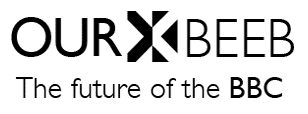Diversify voices on science
by Alice Bell
When it comes to science, some of the best writers, researchers, film-makers, radio-producers, presenters and analysts I know work for the BBC. And yet, science programming is often fronted by an entirely different group of people – scientists.
There’s nothing wrong with scientists fronting some science content. I’m all for of it. Academic snobbery about media dons can just do one. But there’s a lot more to science than scientists.
Increasingly, it feels like you need a university post – probably a prestigious one, high up, at a famous institution – to speak publicly about science. Bizarrely, this is true even when the words being uttered were drafted by a media professional or the academic in question is speaking way outside their area of expertise.
It’s a gloss, a lazy form of spray-on expertise where an academic voice gets applied to media work to give it an unjustified sense of authenticity.
When academics are put in the driving seat, we should be wary it doesn’t dominate proceedings. I worry that the BBC has been beaten up so often on science – as on other issues – that it’s got a bit defensive, and settled on sticking to what the top-brass of science prefer for a quieter life. The top brass of science do know a lot, yes, but they need to be challenged too.
On occasion BBC science coverage can seem a bit unctuous. And that’s boring, if nothing else.
So, stick up for the professional skills required to broadcast science and stick up for the BBC’s independence with it. Let the BBC’s great staff be put front and centre, rather than Wizard-of-Ozzing behind a curtain of white coats.
And when the BBC does give space to professional scientists, give space to a mix of them. There has been some positive change here recently. Women, people of colour, junior academics, people studying the less commented-upon topics. They’re all starting to get a look in. Although science itself needs to address its diversity problems, there is still room for the BBC to put more thought and resources into this, perhaps in conjunction with scientific bodies like Wellcome or the British Science Association.
And, if you’re going for interesting people to talk about science, look beyond people with a Dr in front of their name. Teachers. Writers. Farmers. Kids. All sorts of people have an interest and view – and, importantly, a form of expertise – in science. Let’s hear that diversity.
Why vote? We will feed in readers' favourite ideas to the government's consultation on the future of the BBC, and profile them heavily in the media. We believe the debate over the BBC's future is too narrow and focused on cuts - it's missing strong, positive ideas about what public broadcasting can and should be. By voting, you can have your say on what those ideas should be - and if you've got your own, share them with us→




